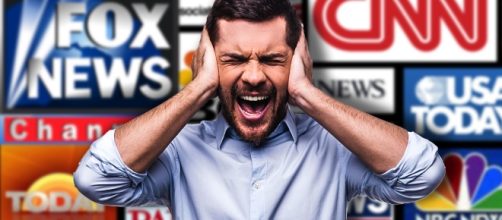I remember the exact moment that I became enamored withjournalism. My A.P. U.S. History teacher made us watch "All the President's Men." I remember thinking that there were few people braver than the men and women who risked all to tell the world the truth. It became clear to me then that the most amazing thing about America was the freedom of the press, which allowed the people to question authority and expose corruption. I realized what a gift it was to live in a country where people weren't executed or prosecuted for speaking the truth. I was young, idealistic, and naive.
The good old days are gone
Slowly I realized that journalism like that rarely exists anymore. Corruption is exposed by whistle blowers, not journalists, and those whistle blowers face prosecution. The news cycle is clogged with stories about Taylor Swift's feud with Kimye and which foods to avoid for optimal weight loss. What the networks call news is entertainment, so entertainment becomes news.
Part of the problem is that news programs became beholden to advertisers. When news programs fell under the control of media empires that worshiped at the altar of the almighty dollar, news programs became about keeping ratings like any other television program. In order to keep ratings they had to keep the attention of the audience.
In order to keep the attention of the audience they had to feed them stories they found entertaining, thus news became entertainment. Today, Americans are reaping what they sowed with a Presidential candidate who is right from reality TV. Trump is the ultimate embodiment of news as entertainment. Real news is a thing of the past.
Howdoes the public get trustworthyinformation?
In a world where news isentertainment, who do the people trust for their information? More and more people are turning to citizen journalism and alternative media outlets. The site I am privileged to write for, Blasting News, is an example of this phenomenon. Ordinary people, some trained as journalists and somenot, disseminate information that the mainstream news outlets do not.
Individual sites run by people from all backgrounds, have popped up all over to provide news to the public. The problem with these individual sites is that they ask the public to trust ordinary people for their information, which is exactly the opposite of how the public has been trained.
Back in the 60's and 70's, when television was new, TV news anchors were like gods. Think about Walter Cronkite and Dan Rather and Barbara Walters. The public was taught that these journalists were experts, that their knowledge was beyond reproach, and they believed that to be true. They were taught that only journalists were qualifiedto provide them with the truth.
Many people still hold that belief. I am one of them, which even I think isstrange since I've adopted the role of a citizen journalist challenging mainstream media.I tend to look at stories broken by citizen journalists as conspiracy theories until they are picked up by a mainstream news outlet.
This week I got an honest look at citizen journalism that is making me reevaluate my opinion. Two days ago mainstream media outlets started reporting that WikiLeaks had uncovered DNC emails that suggested the DNC had been against Bernie Sanders' campaign from the start. The interesting thing is that I'd seen the same story floating around my friends' Facebook pages days before it was reported by any of the mainstream networks. When I saw it reported by these progressive alternative media outlets I honestly thought it was more conspiracy theory than fact. I only believed the story when I saw it on CNN a few days later.
So this is the conundrum in which I find myself: I don't trust mainstream media, but I don't quite trust citizen journalism either. Living in a country where the freedom of the press is the strongest in the world, I no longer know where to get trustworthy information. What's a citizen to do?

